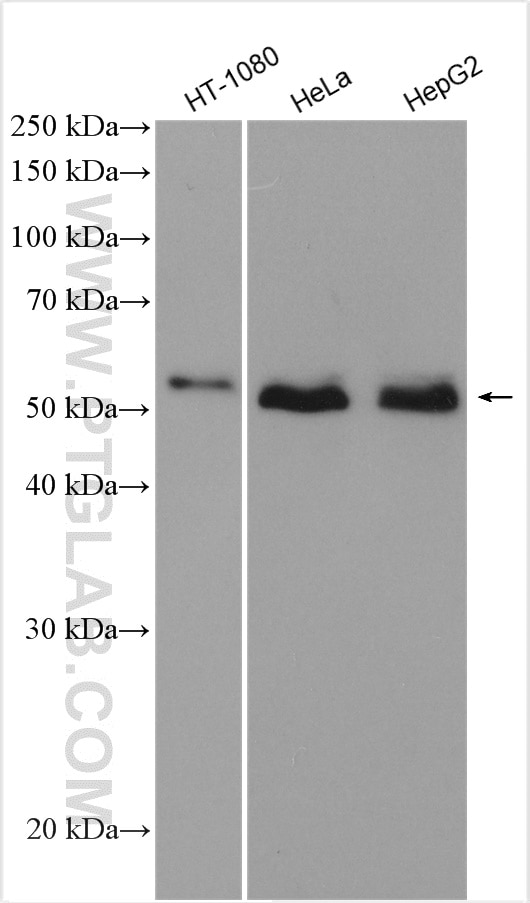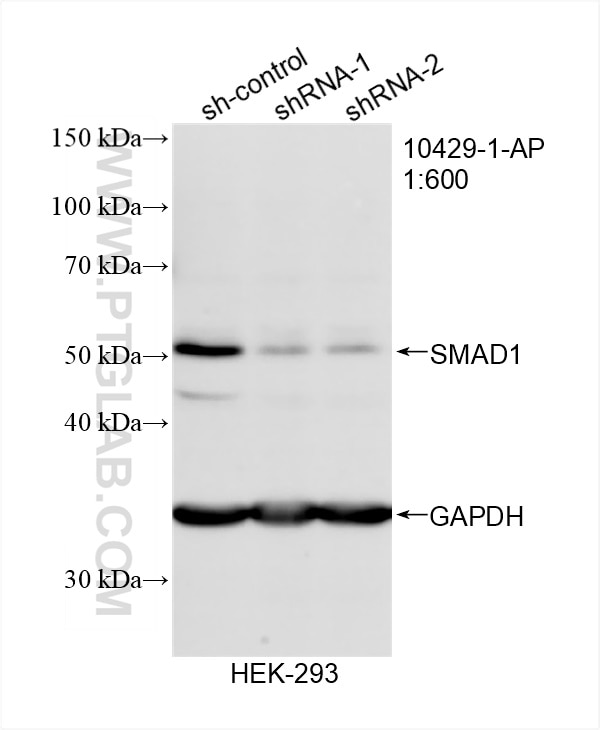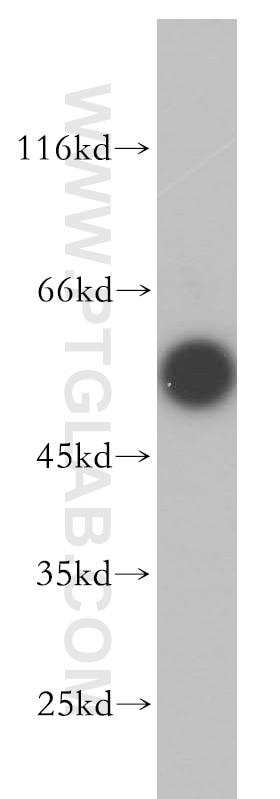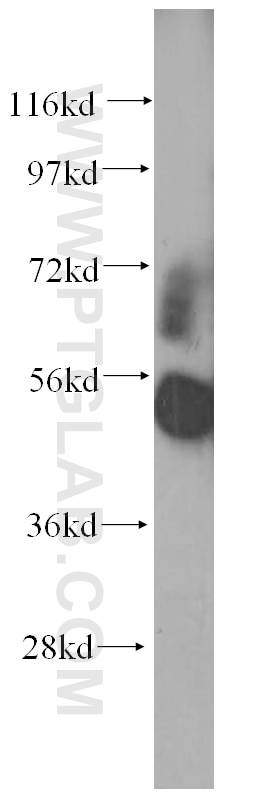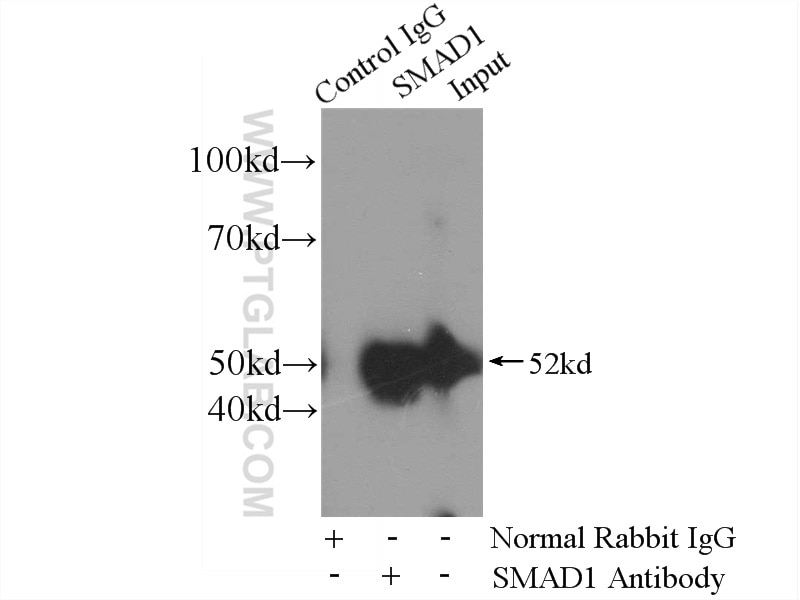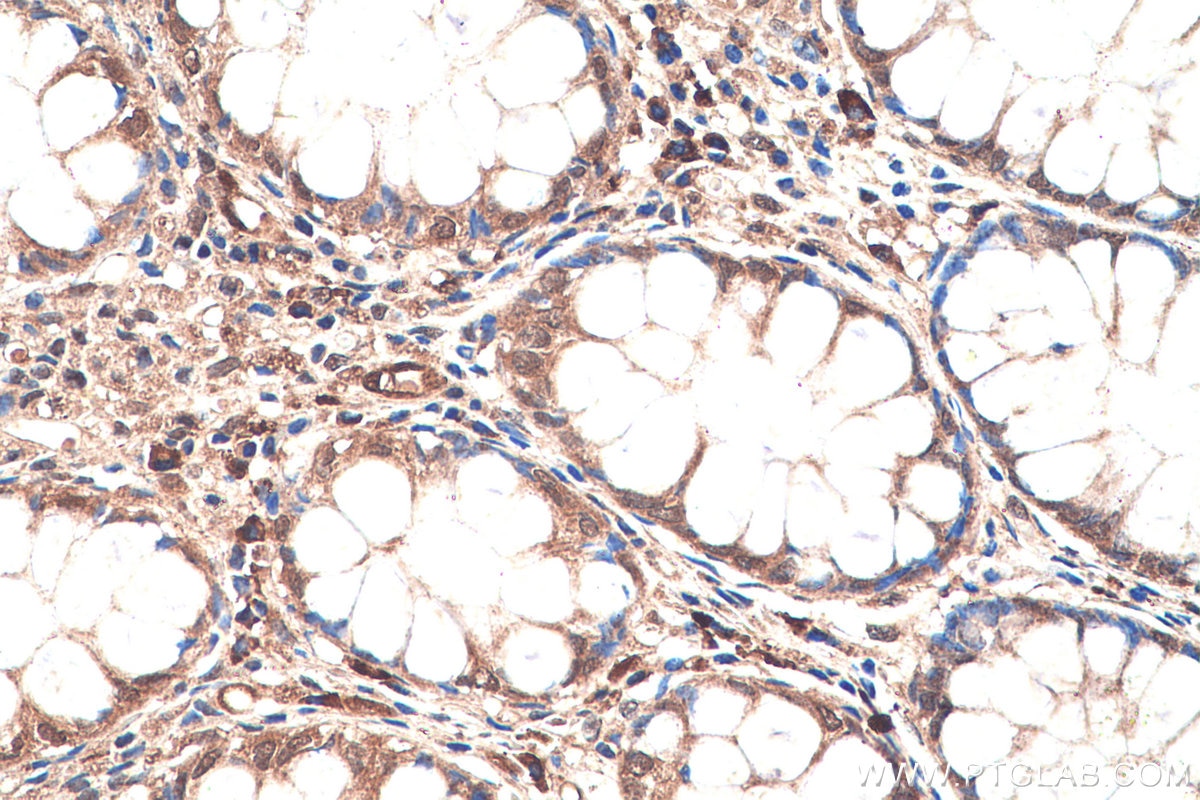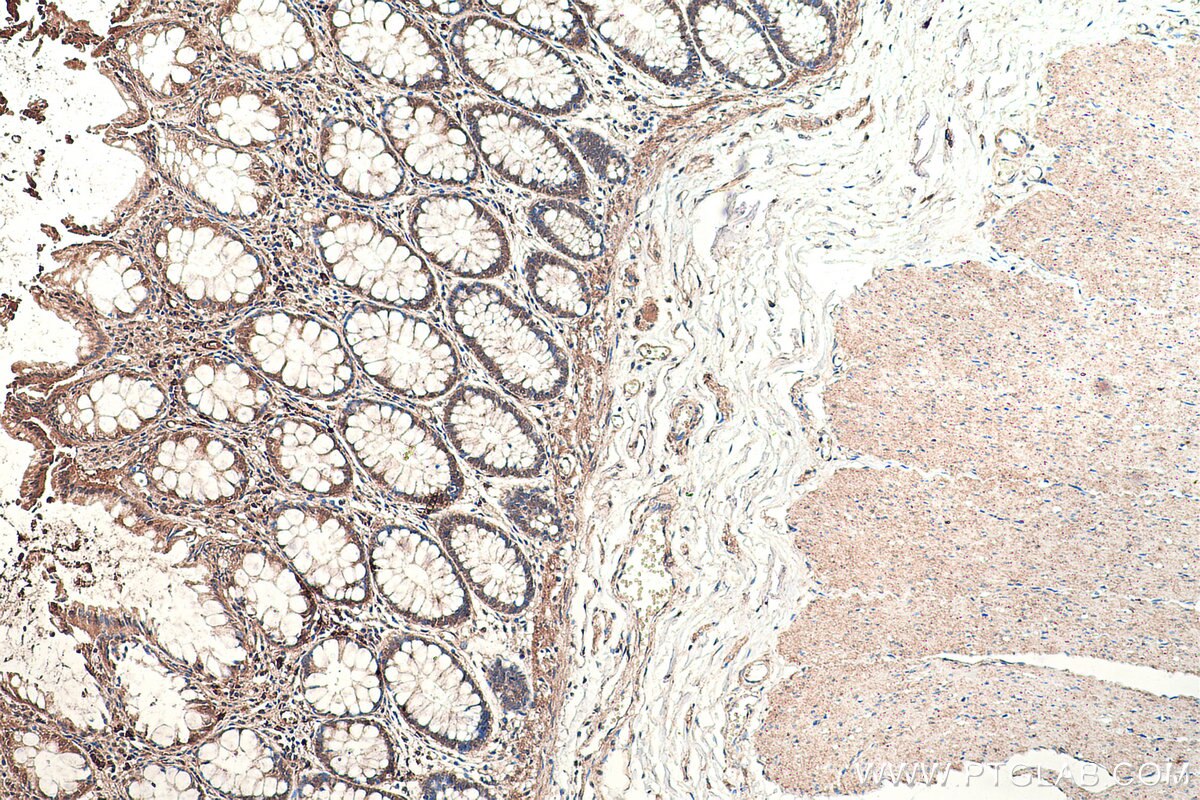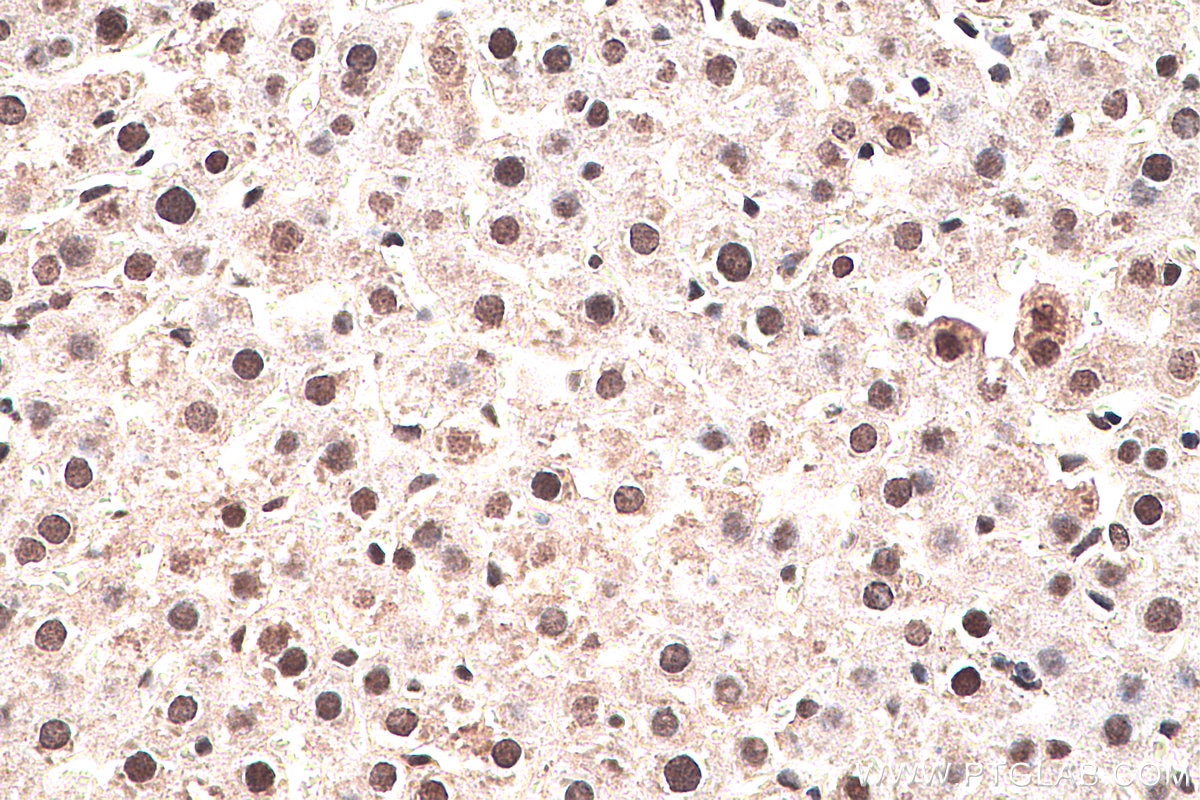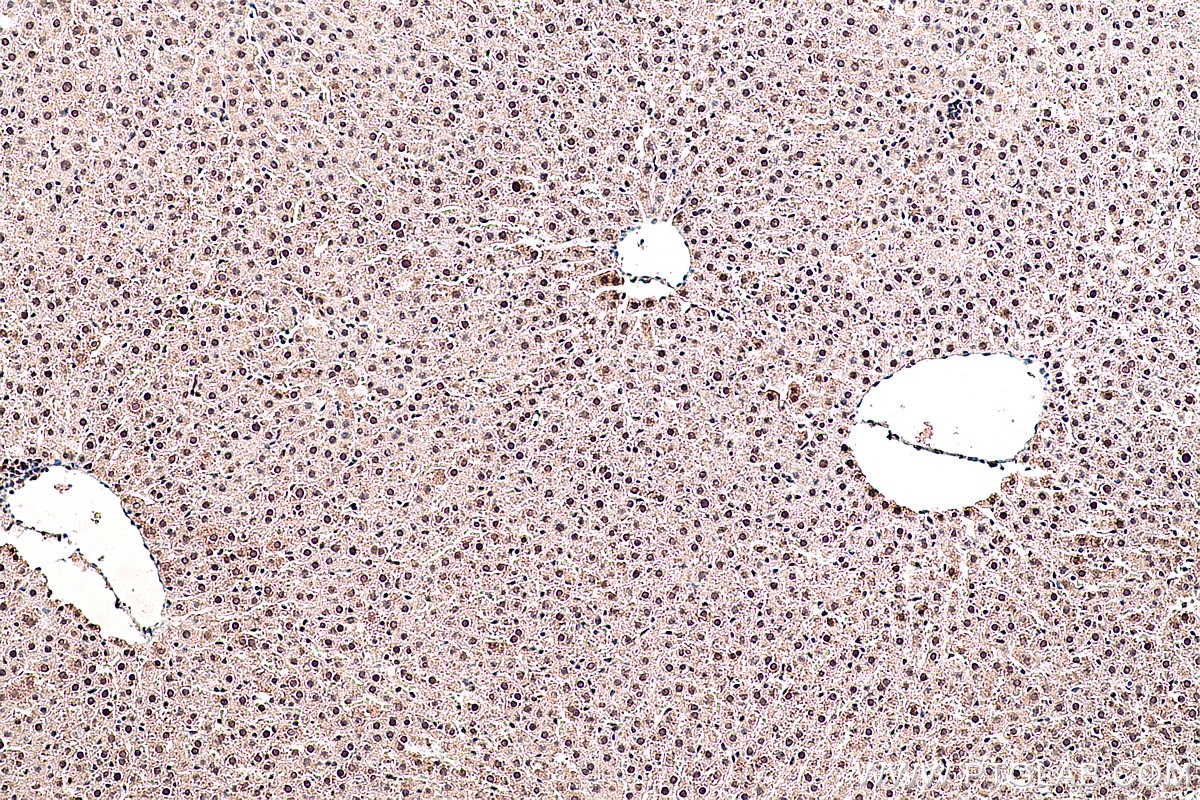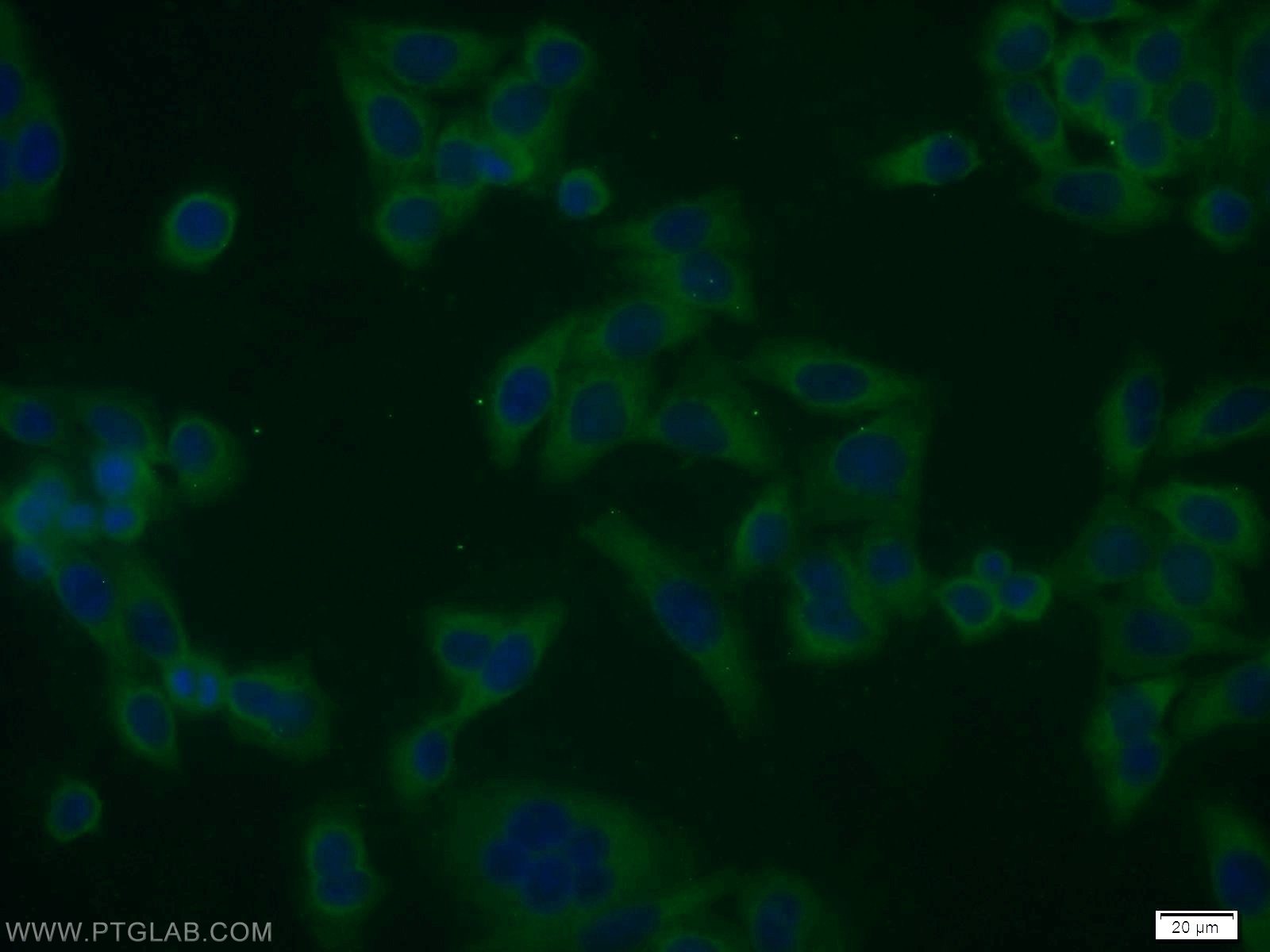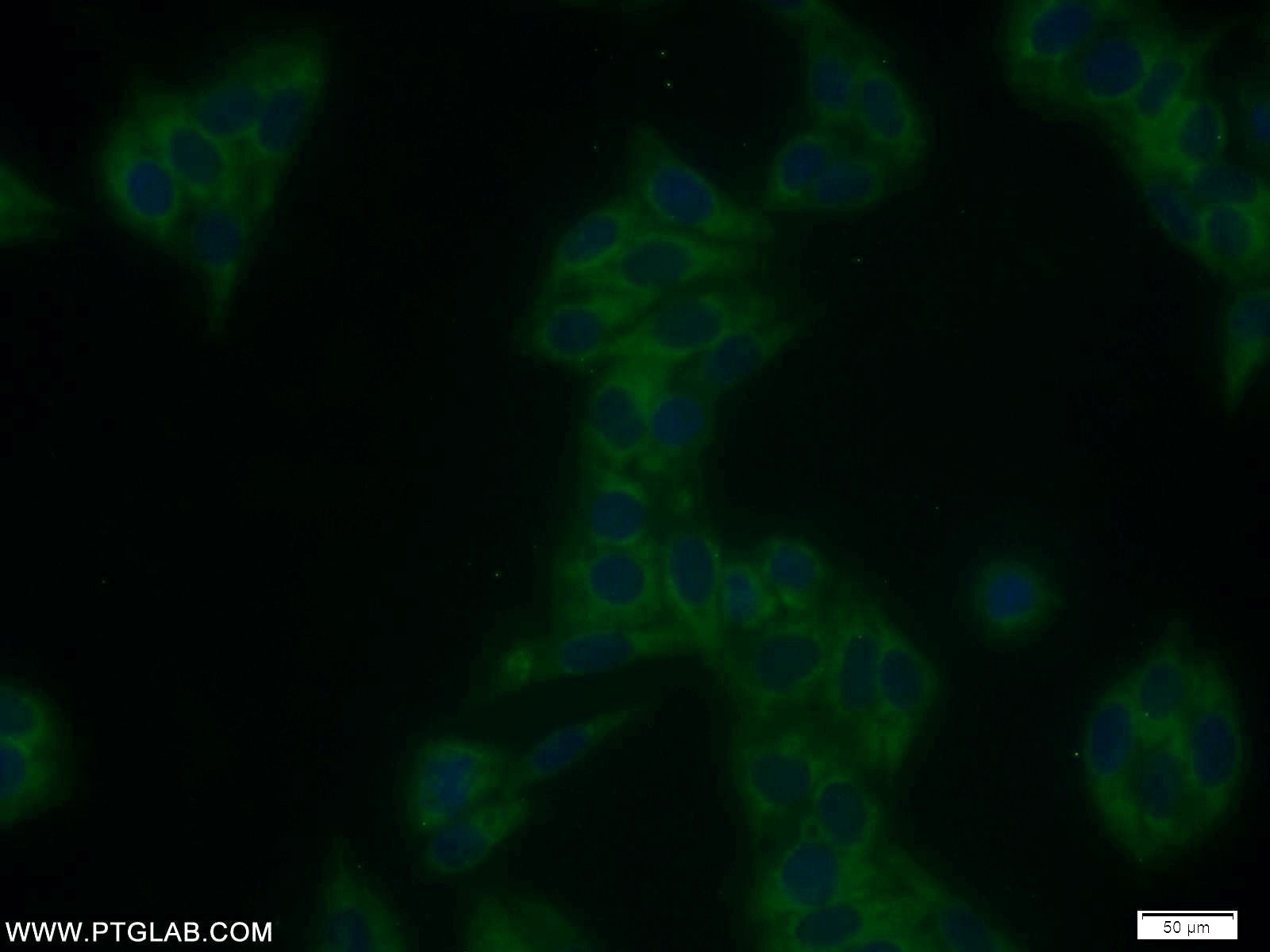- Featured Product
- KD/KO Validated
SMAD1 Polyklonaler Antikörper
SMAD1 Polyklonal Antikörper für WB, IHC, IF/ICC, IP, ELISA
Wirt / Isotyp
Kaninchen / IgG
Getestete Reaktivität
human, Maus, Ratte
Anwendung
WB, IHC, IF/ICC, IP, ELISA
Konjugation
Unkonjugiert
Kat-Nr. : 10429-1-AP
Synonyme
Geprüfte Anwendungen
| Erfolgreiche Detektion in WB | HT-1080.Zellen, HEK-293-Zellen, HeLa-Zellen, HepG2-Zellen, Mausherzgewebe |
| Erfolgreiche IP | Mausherzgewebe |
| Erfolgreiche Detektion in IHC | humanes Kolongewebe, Rattenlebergewebe Hinweis: Antigendemaskierung mit TE-Puffer pH 9,0 empfohlen. (*) Wahlweise kann die Antigendemaskierung auch mit Citratpuffer pH 6,0 erfolgen. |
| Erfolgreiche Detektion in IF/ICC | HeLa-Zellen, HepG2-Zellen |
Empfohlene Verdünnung
| Anwendung | Verdünnung |
|---|---|
| Western Blot (WB) | WB : 1:1000-1:8000 |
| Immunpräzipitation (IP) | IP : 0.5-4.0 ug for 1.0-3.0 mg of total protein lysate |
| Immunhistochemie (IHC) | IHC : 1:500-1:2000 |
| Immunfluoreszenz (IF)/ICC | IF/ICC : 1:10-1:100 |
| It is recommended that this reagent should be titrated in each testing system to obtain optimal results. | |
| Sample-dependent, check data in validation data gallery | |
Veröffentlichte Anwendungen
| WB | See 29 publications below |
Produktinformation
10429-1-AP bindet in WB, IHC, IF/ICC, IP, ELISA SMAD1 und zeigt Reaktivität mit human, Maus, Ratten
| Getestete Reaktivität | human, Maus, Ratte |
| In Publikationen genannte Reaktivität | human, Maus, Ratte |
| Wirt / Isotyp | Kaninchen / IgG |
| Klonalität | Polyklonal |
| Typ | Antikörper |
| Immunogen | SMAD1 fusion protein Ag0701 |
| Vollständiger Name | SMAD family member 1 |
| Berechnetes Molekulargewicht | 52 kDa |
| Beobachtetes Molekulargewicht | 52 kDa |
| GenBank-Zugangsnummer | BC001878 |
| Gene symbol | SMAD1 |
| Gene ID (NCBI) | 4086 |
| Konjugation | Unkonjugiert |
| Form | Liquid |
| Reinigungsmethode | Antigen-Affinitätsreinigung |
| Lagerungspuffer | PBS with 0.02% sodium azide and 50% glycerol |
| Lagerungsbedingungen | Bei -20°C lagern. Nach dem Versand ein Jahr lang stabil Aliquotieren ist bei -20oC Lagerung nicht notwendig. 20ul Größen enthalten 0,1% BSA. |
Hintergrundinformationen
Transforming growth factor-β (TGF-β) superfamily is recognized as one of the largest families of secreted multifunctional peptides exerting different biological effects on a large variety of cell types, such as regulation of hormone secretion, stimulation of extracellular matrix formation, the inhibition of proliferation of many cell types, cell survival, bone formation, and chemotaxis for inflammatory cells. One of the most important proteins that modulate TGF-β ligand activity is the SMAD family proteins. SMAD1 is one of the receptor-activated Smads. It's also a signal transducers of BMP signaling and binds to several proteins involved in ubiquitin-proteasome system (UPS). Transcriptional modulator activated by BMP (bone morphogenetic proteins) type 1 receptor kinase
Protokolle
| PRODUKTSPEZIFISCHE PROTOKOLLE | |
|---|---|
| WB protocol for SMAD1 antibody 10429-1-AP | Protokoll herunterladen |
| IHC protocol for SMAD1 antibody 10429-1-AP | Protokoll herunterladenl |
| IF protocol for SMAD1 antibody 10429-1-AP | Protokoll herunterladen |
| IP protocol for SMAD1 antibody 10429-1-AP | Protokoll herunterladen |
| STANDARD-PROTOKOLLE | |
|---|---|
| Klicken Sie hier, um unsere Standardprotokolle anzuzeigen |
Publikationen
| Species | Application | Title |
|---|---|---|
Carbohydr Polym In vitro and in silico anti-osteoporosis activities and underlying mechanisms of a fructan, ABW90-1, from Achyranthes bidentate. | ||
Cell Death Discov TAZ promotes osteogenic differentiation of mesenchymal stem cells line C3H10T1/2, murine multi-lineage cells lines C2C12, and MEFs induced by BMP9 | ||
Front Immunol Silencing SOCS3 Markedly Deteriorates Spondyloarthritis in Mice Induced by Minicircle DNA Expressing IL23. | ||
Front Mol Neurosci Tcf4 Controls Neuronal Migration of the Cerebral Cortex through Regulation of Bmp7. | ||
IUBMB Life LncRNA RP11-301G19.1 is required for the maintenance of vascular smooth muscle cell contractile phenotype via sponging miR-17-5P/ATOH8 axis | ||
Ecotoxicol Environ Saf Exosomal miR-125a-5p derived from silica-exposed macrophages induces fibroblast transdifferentiation. |
